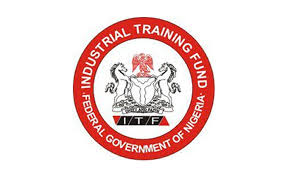How to Solve Tax Problems in Nigeria

How to solve Tax problems in Nigeria
How to solve Tax problems in Nigeria is indeed worrisome, disturbing and distasteful. Having tax authority in Nigeria to come after you or your organization is indeed a nightmare. In August 2018, the FIRS placed a lien on accounts of some individuals and organizations for issues ranging from evasion, avoidance and other tax related matters.
State Inland Revenue Services were equally out to shut the offices and work place of organizations that refused to comply with their tax payment.
While there are reputable firms with chartered accountant and chartered tax practitioners and tax attorneys to assist in settling tax issues, there are also unscrupulous companies pledging to resolve tax problems for Kobo on the Naira
There is no way anybody can guarantee that they can cut the tax obligations by any amount until they have discussed something with the IRS.
Generally, tax disputes put taxpayers in precarious situations as they are faced with a commercial dilemma of making prompt business decisions in the face of uncertain tax positions. Thus, speedy resolution of tax disputes is critical to any business.

With the N8.3 trillion targets of FIRS in 2019, which is far above the N5.2 trillion revenue in 2018, they continually intensify their tax collection efforts to meet up with their targets. This tends to result in frequent disputes between taxpayers and tax authorities. The tax issues arising from this range from disputes on a taxpayer’s actual tax liabilities to whether the tax authorities had followed due process in notifying a taxpayer of alleged liabilities amongst other issues. Thus, it is important that taxpayers are abreast of the dispute resolution process in Nigeria and the options that are available on how to solve Tax problems in Nigeria
Reasons for Tax Disputes
- Interpretation of Tax Laws – The recurring need for interpretation of tax legislations has become a major cause of dispute in tax administration. In instances where the tax authorities’ interpretation of the tax laws differ from that of the taxpayers, disputes are almost inevitable. For example, the Lagos State Internal Revenue Service (LIRS), in recent times, issued a series of public notices stating their position on some tax issues, relying on the provisions of the tax laws. This resulted in a number of tax disputes as some taxpayers had different views from the reading of the same provisions.One of such notices is the LIRS’ circular on Taxation of Employee Loan issued in 2017. In that circular, the LIRS relying on Section 3(1)(b) of the Personal Income Tax (PIT) Act mandates employers to remit Pay As You Earn (PAYE) Tax on Benefits-In-Kind (BIK) relating to employee loans. According to the LIRS, the BIK is to be calculated as the difference between the interest rate on the loan and an adjusted Monetary Policy Rate and PAYE Tax should be applied thereon. A number of taxpayers have disagreed with the position of the LIRS as the law contains no provisions with respect to determining BIK on employee loans. Consequently, this has resulted in varying disputes with the LIRS.While the tax authorities typically tilt towards interpretations that favour revenue drive, the taxpayers tilt towards interpretations that favour tax efficiency. This conflict in the motive of interpretations could result in disputes between the taxpayers and tax authorities.
- Inconsistency in Tax Authorities’ Position – Where the tax authorities adopt an inconsistent approach in dealing with tax issues, taxpayers are put at risk and this could result in tax disputes. In the case between Federal Board of Inland Revenue (FBIR) v Halliburton West Africa Limited (2014), the FIRS reneged from its earlier published circular on the tax treatment of recharges by non-resident companies and this resulted in a major tax dispute. Although the Court of Appeal resolved the issue in the favour of the FIRS, stating that the FIRS’ earlier position could not supersede the law, taxpayers still rely largely on the decisions and positions of the tax authorities to make certain business decisions. Where the tax authority is not consistent in its position, there is bound to be dispute.
- Inconsistency in the provisions of the law – Contradictions in the tax laws have frequently resulted in tax disputes. An example of this is Section 19 of the Companies Income Tax Act (CITA) on excess dividend tax, which has led to a number of tax litigations. This is because the literal interpretation of Section 19 contradicts other provisions of the tax laws by allowing for the taxation of income that has previously been taxed or exempt from tax under the law. For example, Section 19 appears to contradict Section 80(3) of the CITA that restricts further taxation of franked investment income and Section 60 of the Petroleum Profits Tax Act that exempts dividends distributed from petroleum profits from further tax.
- Inability of Taxpayers to keep records – Although the Companies and Allied Matters Act (CAMA) requires companies to retain their accounting records for a period of six years from the date they were made, many companies do not adhere to this rule. Similarly, our tax laws stipulate varying penalties for failure to keep books of account.Failure to keep proper tax and accounting records could pose difficulties to a taxpayer in defending its tax position with the Relevant Tax Authority (RTA). It could also lead to inability to reconcile a taxpayer’s record with the tax authorities’ and this is a trigger point for tax disputes.
- Audits/Tax Investigations – There are a number of dispute triggers which may attract the attention of the tax authorities during a tax audit or investigation. These triggers include situations where there is an inconsistency in a taxpayer’s filings or where a taxpayer engages in aggressive tax planning. Other triggers include significant unutilized capital allowance, inconsistency in filing of tax returns, frequency of acquisition and disposal of qualifying capital expenditure, related party arrangements, significant Value Added Tax and Withholding Tax (WHT) receivables, high operating expenses ratio to revenue amongst others.
- Procedure for Exercise of Statutory Powers – The Nigerian tax laws vest certain powers on the tax authorities which could be exercised when taxpayers fail to fulfil their tax obligations. These include the power to issue “best of judgment” assessments, impose penalties, distrain taxpayers’ properties and so on. However, these powers should not be exercised arbitrarily. Unfortunately, the tax authorities sometimes exercise powers granted to them in such a manner that lead to disputes with taxpayers. For example, in exercise of their powers to appoint persons as agents for tax collection under Section 31 of the FIRS (Establishment) Act, the FIRS directed the lien of a number of taxpayers’ bank accounts. Some taxpayers perceived this move as an arbitrary exercise of powers as some of the liabilities in question had not crystallized or even become final and conclusive. This led to several tax disputes. The Tax Appeal Tribunal (TAT or Tribunal) and Courts have also attempted to weigh in on the arbitrary exercise of the tax authorities’ powers. In the case between FIRS v Chi Chi & Mark Ltd , the TAT held that where it is found that the tax in dispute was wrongly assessed, the assessment cannot be said to be final and conclusive. Similarly, in the case between Star Deep Water Petroleum Limited v LIRS the TAT held that an assessment which is not in line with the law cannot be final and conclusive.
How to Solve Tax Problems in Nigeria
The Nigerian tax laws outline dispute resolution procedures for tax issues. Although the various tax laws stipulate different timelines for compliance and appeal, the basic procedure remains largely the same. Upon filing of tax returns, the tax authorities review each taxpayer’s return for correctness. If, in the opinion of the tax authority, the taxpayer has not declared or remitted the right amount of tax, the tax authorities would impose an assessment event that such taxpayers fail to file their returns. The tax authorities are also empowered to impose assessments based on their “best of judgment” on such taxpayer.
Rather than entering a potentially risky situation and end up paying more in fees and interest without a resolution, here are five steps you can take take when faced with tax issues.
- Object to such Assessment in Writing – A taxpayer that is aggrieved by the assessment of an RTA may object to such assessment in writing within a stipulated timeline. Afterwards, such RTA may choose to amend or refuse to amend the assessment. In the event that the RTA refuses to amend the assessment, the RTA would issue a Notice of Refusal to Amend (NORA).
- Contact the RTA – After receiving notice of any outstanding tax obligations or penalties, it is essential to contact the Relevant Tax Authority and address the issue immediately. If you speak to a revenue officer, he is going to be willing to work with you depending on your circumstances. The revenue officer may ask you to submit certain financial information to show your ability to pay.
- Ask for Payment Program Options – Consumers unable to pay off taxes, penalties and fees in full should inquire about their eligibility to participate in the RTA offer in compromise program-but be prepared to back up claims of financial hardships with necessary documents, Depending on their circumstances, taxpayers may also be eligible for the installment payment
- Opt for a Litigation – If the taxpayer is still aggrieved with the submission of RTA, such taxpayer may opt for a litigation procedure or an alternative dispute resolution mechanism available to press further on his demands.
- When in Doubt, Hire a Tax Consultant – Some tax matters get so complicated that it is best to work with a reputable tax professional. Except it is a very small amount and you know that you can pay it off over a relatively short period of time, the best thing to do is get to a reputable accountant, tax attorney or specialist who will explain to you, the process and not promise the moon, then you have the facts you can deal with. It is in taxpayers’ best interest to be honest and upfront about their situation and provide the professional handling their case with as many documents as possible, to increase their chances of reaching an agreement with the RTA.
For more information:
SOW Professional Services, is a reputable tax consultant in Nigeria, as a professional tax consultant in Nigeria, we understand how tax problems can be resolved, hence, we look forward to assist you with this process. Please call: Call us on 07038254989 or send a mail to: care@sowprofessional.com,
WhatsApp: 07038254989, www.sowprofessional.com



